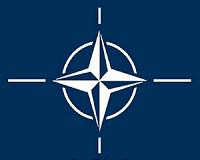 |
Sanya, China (AFP) April 14, 2011 Leaders of five of the world's major emerging powers said Thursday the use of force in Libya and the Arab world should be avoided, at a summit intended to showcase their growing global clout. The leaders of Brazil, Russia, India, China and South Africa also warned in a joint statement that volatile commodity prices could slow the global economic recovery and that huge capital flows could hurt the developing world. Chinese President Hu Jintao chaired the wide-ranging morning talks in the southern China resort city Sanya with South Africa's Jacob Zuma, Brazil's Dilma Rousseff, Russia's Dmitry Medvedev, and Indian Prime Minister Manmohan Singh. The leaders were seeking to present a united front as they push for their countries to have a bigger say on the world stage, particularly within the United Nations, the International Monetary Fund and other global institutions. The five nations -- which together represent more than 40 percent of the world's population -- said their unusual joint presence on the UN Security Council in 2011 offered an opportunity to work together on Libya. "We are of the view that all the parties should resolve their differences through peaceful means and dialogue in which the UN and regional organisations should as appropriate play their role," the leaders said in the statement. "We share the principle that the use of force should be avoided. We maintain that the independence, sovereignty, unity and territorial integrity of each nation should be respected." South Africa was the only BRICS nation to approve a UN Security Council resolution establishing a no-fly zone over Libya and authorising "all necessary measures" to protect civilians, opening the door to coalition air strikes. The other four countries have expressed concern that the NATO-led campaign -- which aims to thwart Moamer Kadhafi's assault on rebels seeking to end his 41-year rule -- is causing civilian casualties. Medvedev later told reporters that the bloc was "absolutely united" on the idea that the resolution did not endorse the use of military force. "We essentially have got a military operation. The resolution says nothing about it," the Russian leader said, warning that any efforts to exceed a UN mandate in any situation represented a "very dangerous tendency". On the economy, the five countries -- whose combined GDP accounted for 18 percent of the global total in 2010, according to the IMF -- expressed concerns about risks to the global recovery. "We note that the world economy is gradually recovering from the financial crisis, but still faces uncertainties," the BRICS leaders said, supporting moves to reform the international monetary system. "Excessive volatility in commodity prices, particularly those for food and energy, poses new risks for the ongoing recovery of the world economy," said the countries, many of which are experiencing high consumer inflation. "We call for more attention to the risks of massive cross-border capital flows now faced by the emerging economies," they added. Goldman Sachs economist Jim O'Neill first coined the term BRIC in 2001 to describe the growing influence of the world's four largest emerging economies. South Africa was invited to join the group at the end of last year. "The BRIC economies are increasingly the major story for the world economy -- they have lifted the world economy's growth trend from 3.7-4.5 percent in my view," O'Neill was quoted as saying by the official China Daily newspaper. The five nations called for "comprehensive reform" of the United Nations, including the Security Council, "with a view to making it more effective, efficient and representative". China and Russia are veto-wielding permanent Security Council members. India has long pressed for a permanent seat, while South Africa and Brazil are part of campaigns to see better representation for Africa and Latin America. Russia has supported India and Brazil's bids -- moves not endorsed by China. One issue not mentioned in the wide-ranging statement was China's controversial exchange rate regime. Brazil believes the yuan is undervalued, giving China an edge on exports and hurting the South American nation's trade balance.
Share This Article With Planet Earth
Related Links
 NATO ministers meet on Libya as air strikes intensify
NATO ministers meet on Libya as air strikes intensifyBerlin (AFP) April 14, 2011 NATO foreign ministers gathered Thursday in Berlin amid calls for increased air strikes on Moamer Kadhafi's forces and growing divisions among world powers over whether to arm Libya's rebels. The meeting came as NATO planes put on a show of force Thursday above the Libyan front line, with rebels reporting they were bombing targets on the road leading west, towards the key oil town of Brega, ... read more |
|
| The content herein, unless otherwise known to be public domain, are Copyright 1995-2010 - SpaceDaily. AFP and UPI Wire Stories are copyright Agence France-Presse and United Press International. ESA Portal Reports are copyright European Space Agency. All NASA sourced material is public domain. Additional copyrights may apply in whole or part to other bona fide parties. Advertising does not imply endorsement,agreement or approval of any opinions, statements or information provided by SpaceDaily on any Web page published or hosted by SpaceDaily. Privacy Statement |